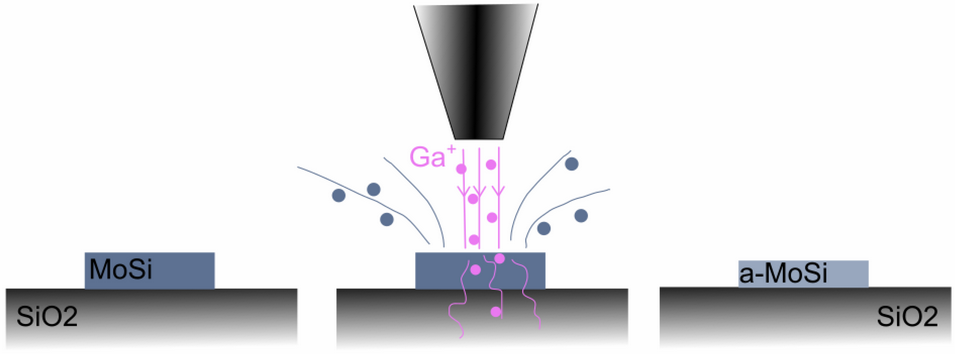amorphous superconductor with 4 K critical temperature

Enhancement of Superconductivity by Amorphizing Molybdenum Silicide Films Using a Focused Ion Beam
We have used focused ion beam irradiation to progressively cause defects in annealed molybdenum silicide thin films. Without the treatment, the films are superconducting with critical temperature of about 1 K. We observe that both resistivity and critical temperature increase as the ion dose is increased. For resistivity, the increase is almost linear, whereas critical temperature changes abruptly at the smallest doses and then remains almost constant at 4 K. We believe that our results originate from amorphization of the polycrystalline molybdenum silicide films.